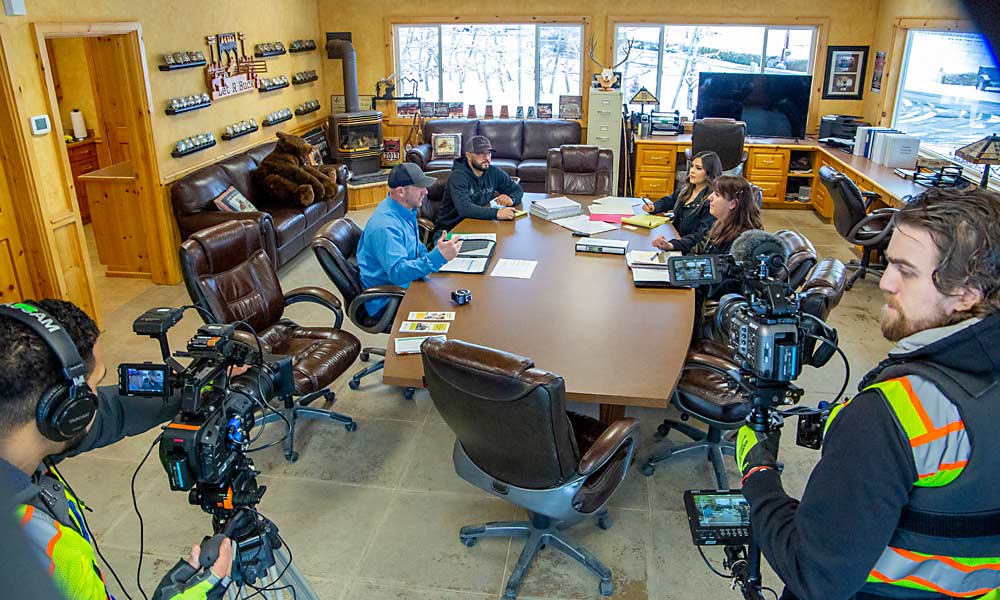
Editor’s note: The caption in the first photo has been updated to clarify that growers who participate in the consultation get a 12-month reprieve from unannounced inspections unless as a result of a referral.
The eyewash station must be located near the pesticide fill station. Ensure drivetrains are covered. You may fix broken extension cords, but tag them as “out of service” so nobody uses them accidentally in the meantime.
Those are just a few examples of what Washington State Department of Labor and Industries safety consultants will look for if you sign up for a voluntary visit.
The agency, generally called L&I, is charged with enforcing workplace safety in Washington. Its compliance inspectors have the power to fine employers not following the rules; however, L&I also offers consultations to proactive growers in exchange for exemption from unannounced compliance inspections.
“Why wait for compliance to come in and write us up on something we’re probably not doing right?” said Eladio Gonzales, orchard manager for G.S. Long in Naches.
The farm has been scheduling consultations for three years to help it avoid fines, lower workers’ compensation premiums and, most importantly, create a safer environment for employees, Gonzales said.
The consultants aim to help and to advise, they said, not to punish.
“We don’t bite,” said Mitch Reffett, a consultant who is based in Moses Lake and spoke at the Washington State Tree Fruit Association Annual Meeting in December. He has worked in agriculture for 10 years, seven as a farmer.
Proactively scheduling a consultation gives a grower a 12-month reprieve from surprise, random inspections — like those for an emphasis program during which compliance staff look for specific problems, such as tractors without roll bars. Inspectors will continue to investigate specific injuries, complaints or referrals.
The consultants themselves do not penalize growers for safety concerns, but they will point them out. The grower must then address those problems and file a signed certification when the compliance work is done. Occasionally, consultants return for subsequent visits.
Also, consultants will share their results with the grower but not with the compliance arm of L&I.
The safety tour is led by the grower. Consultants will ask to interview workers confidentially and take photos, but only with the grower’s approval.
“With consultation, the walk-around is 100 percent led by you,” Reffett said.
Growers may schedule one comprehensive visit every 12 months and smaller, issue-specific visits in between. Farms under an open compliance investigation are ineligible.
Consultations are funded through employer industrial insurance premiums. There is no extra charge.
The Washington Farm Bureau endorses consultations. The nonprofit agency has its own safety directors who will either accompany a grower on the tour or even give a pre-consultation walk-through.
“We’ll be there and go through it with you,” said Corwyn Fischer, assistant safety and claims director for Washington Farm Bureau.
The nonprofit also will help a grower implement needed changes identified by the consultants.
“Maybe they don’t have a tractor safety policy,” Fischer said. “We have that in our library.”
What it looks like
In February, G.S. Long invited Good Fruit Grower to tag along on a consultation. L&I also brought a film crew for its own promotions. The consultants conducted the real work one day and re-enacted it the next.
Here’s what it looked like.
First, paperwork. Reffett and Erica Minton, an industrial hygiene consultant with L&I, started by reviewing documents with Gonzales and Jessica Capi of G.S. Long. In fact, Gonzales specifically asked them for this. He and his staff try their best to stay up-to-date with training programs and written policies, but rules constantly change, he said.
For example, Minton recommended G.S. Long update its written accident prevention program to designate a respiratory protection program administrator and fill in a few other blanks.
The walking tour included stops at fire extinguishers, the eyewash station and the storage facility for personal protective equipment, where Minton made sure items were in good condition with an array of sizes and stored separately from the farm chemicals. They were.
In the shop, Reffett checked for holes on a flail mower’s driveline cover. Drivelines between tractors and equipment must be covered to prevent an article of clothing from getting caught. Covers become brittle and can crack, however, exposing the dangerous spinning shaft. G.S. Long’s cover was intact.
Also in the shop, Reffett asked Gonzales to tag a broken extension cord, to prevent an employee from using it before it was fixed.
The consultants checked to make sure safety posters were visible in a high-traffic area and that all circuits in electrical boxes were clearly labeled. Check and check.
Following the proactive theme, Gonzales asked Reffett to check out a “man basket” attached to a forklift used to deploy shade cloth.
“I’m glad this was actually left out here, because I’ve been wanting to ask a question about it,” Gonzales said.
Turns out, the railing was too low — 34 inches instead of the required 39–45 inches. “It’s not in use right now, but just for your education purposes, this could get you a citation,” Reffett said.
Gonzales has taken the lift out of commission until the farm either fixes it or at least speaks with the manufacturer.
“That’s a prime example right there why we do the consultation,” Gonzales said.
Safety checkup
Here are a few examples of items an L&I safety consultant will check:
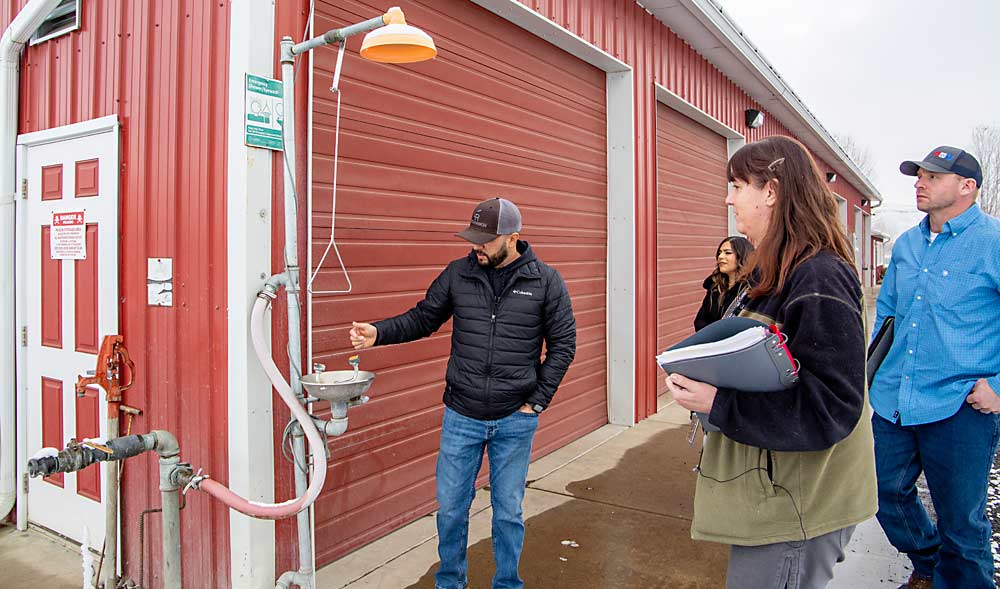
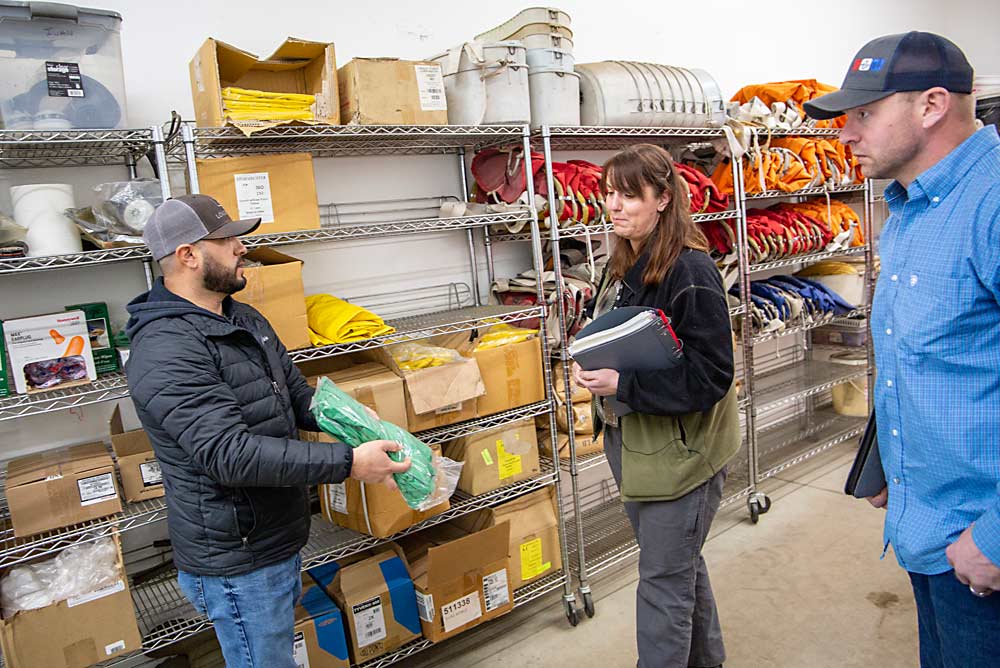
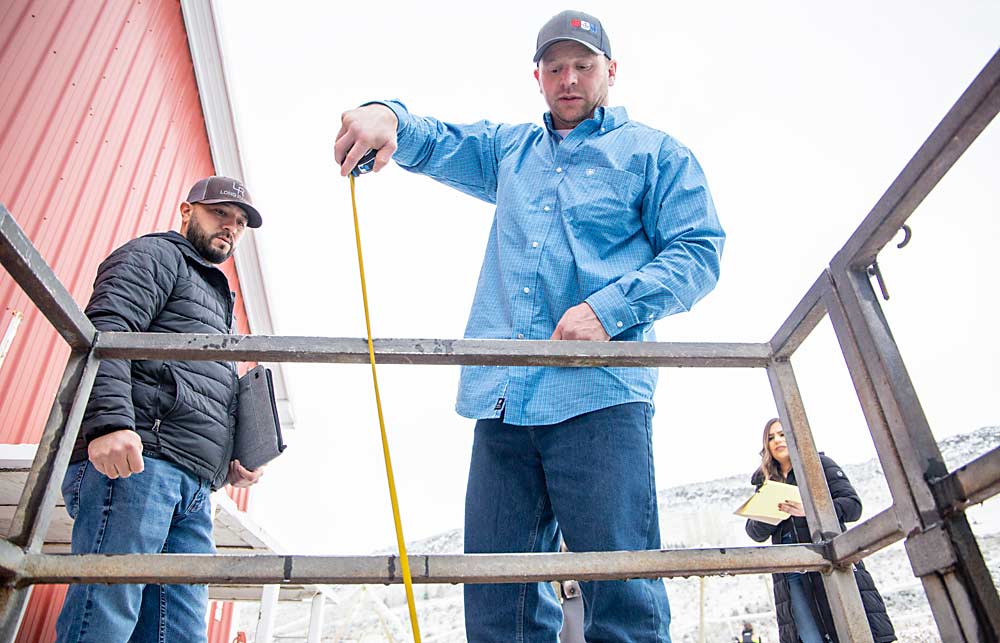
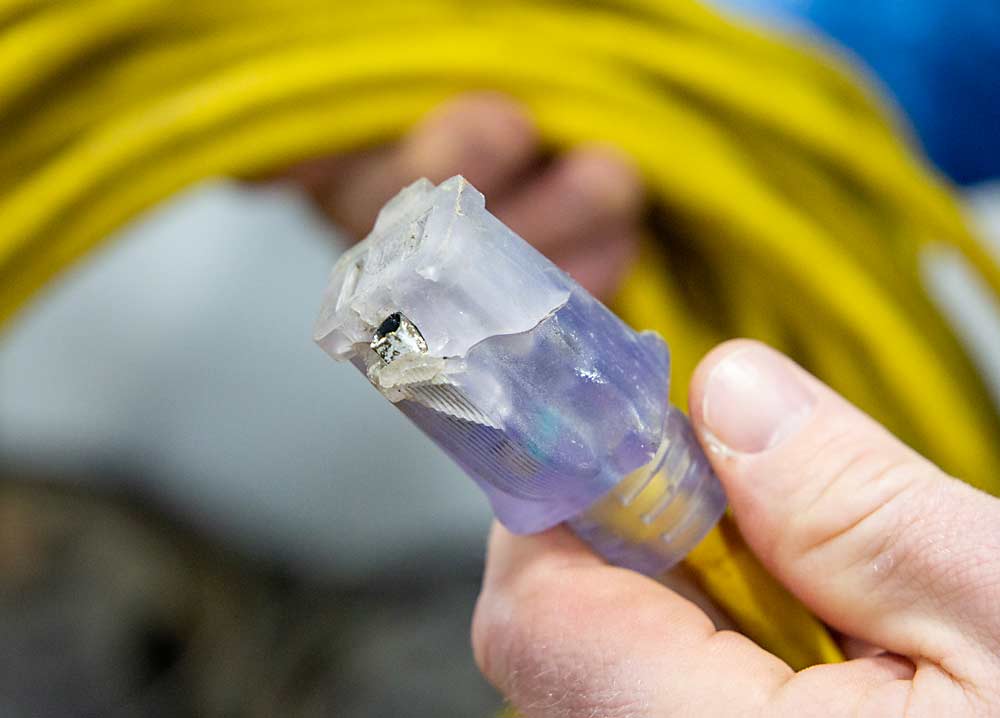
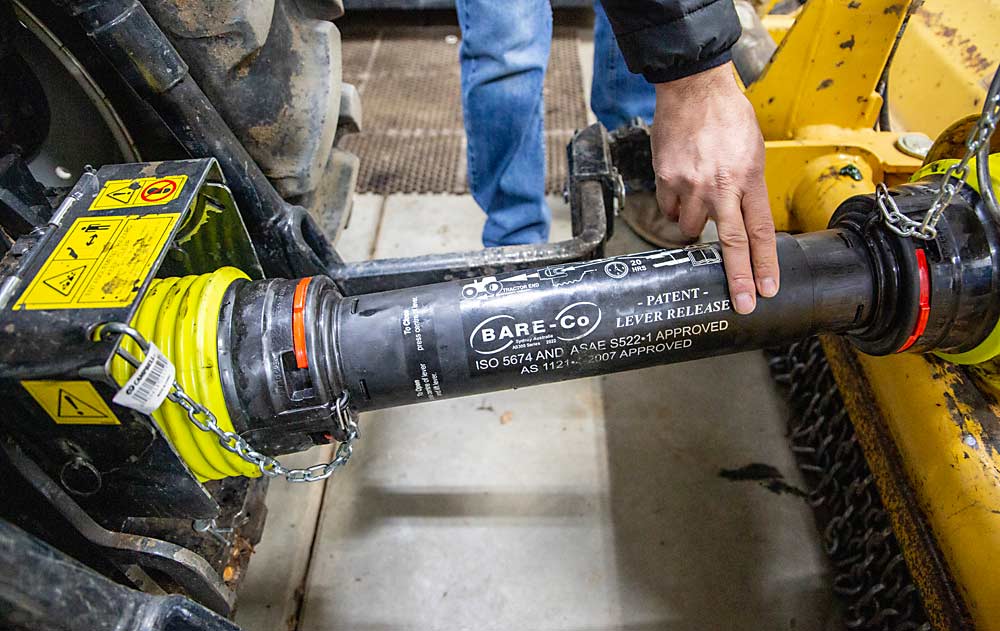
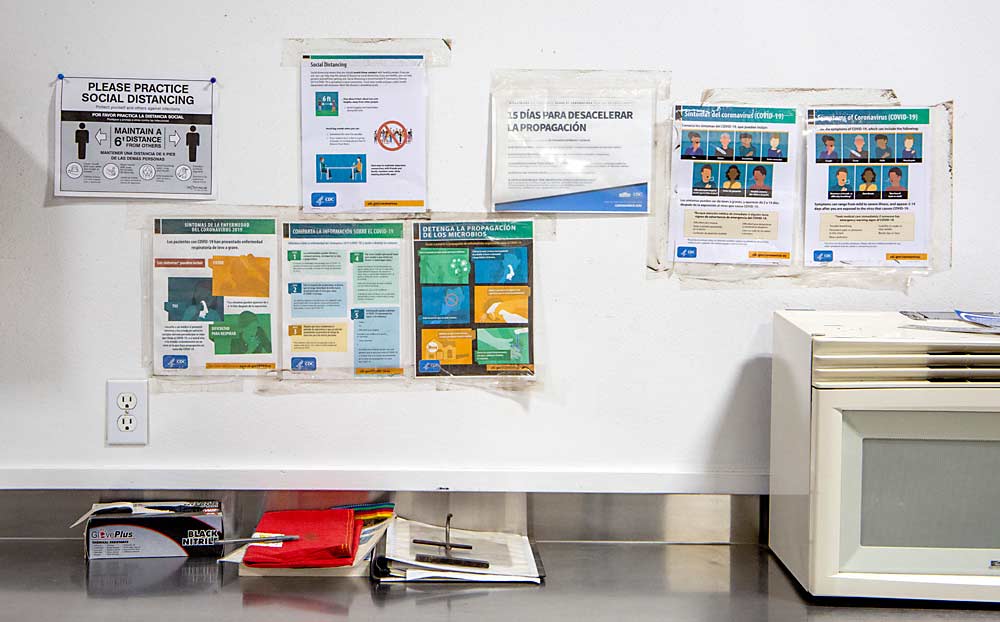
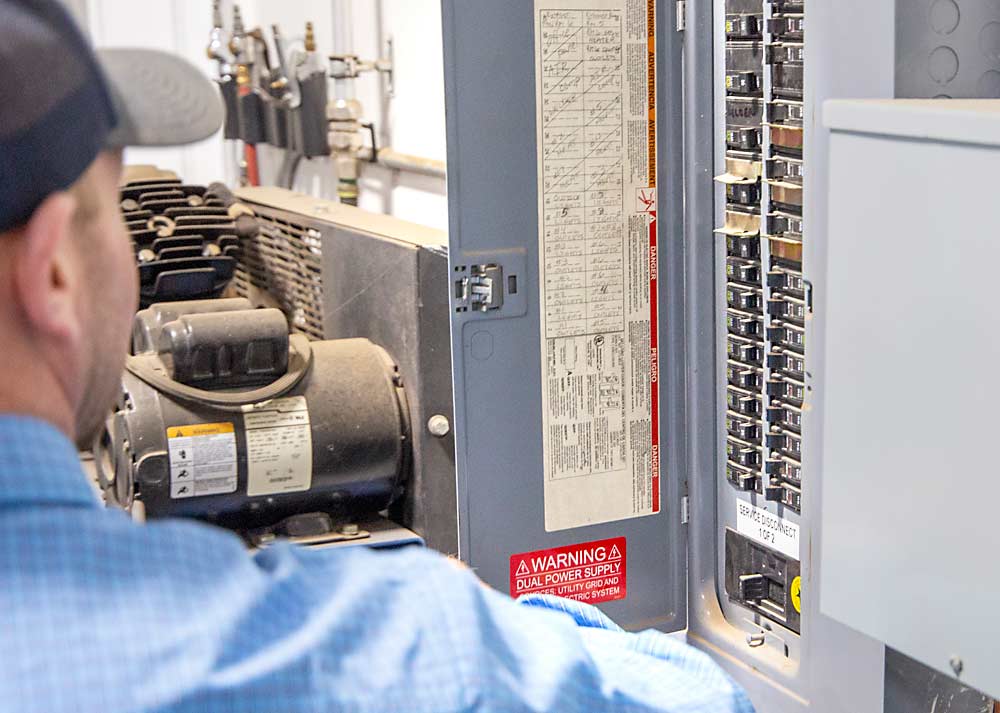
—by Ross Courtney






Leave A Comment